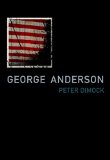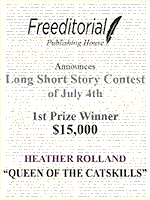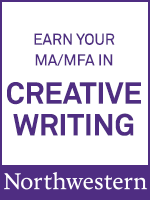March 2013
Trevor Jockims
fiction
George Anderson: Notes for a Love Song in Imperial Time by Peter Dimock

Peter Dimock's new novel, George Anderson: Notes for a Love Song in Imperial Time is about torture and politics, making it so well suited for America's contemporary dialogue, but it's also about the difficult (and dishonest) things that language can and cannot do. Stretch that last part a bit further and it's also a novel that's trying to find out what novels can and cannot do. As Wallace Stevens said, poetry is always the subject of the poem.
The book is a letter written from one Theo Fales, an historian-turned-book-editor who has made a good living helping CIA directors and retired generals write books that make the complicated and sometimes messy things they did during their careers sound more straightforwardly heroic and good in the cozy light of memoir. He probably felt okay about this for a long time, but not anymore. Not, in any case, since this happens at the funeral of a colleague:
Toward the middle of the service -- the choir was singing -- I felt myself enter through the gates of a vision into my real history. (Tears were streaming down my face; I noticed but did not feel them.) Nothing remotely like this had happened to me before... In my vision I was suddenly four years old again standing behind my mother, clutching in my fists the folds of her black and yellow skirt.
The vision has elephants and mothers and Jamaican and New England light in it, but it all adds up to this: "I saw that a New World history of true love was both possible and inevitable." The novel is composed of a letter that attempts to outline and teach a way to bring out precisely this sort of revelation. A way out of darkness -- blind, consumeristic imperialism -- and into a better light. "At May Joscelyn's funeral," Fales writes, "I saw a true vision of another history I had forgotten to live in a way that could be stored and then retrieved from memory."
Fales is writing to David Kallen, a man whom he does not know, but who is the (fictional) author of the (very real) December 30, 2004 Memorandum Opinion for the Deputy Attorney General. The document itself can easily be read -- either online, or in the back of the book, since Dimock includes it there -- but here's the short version: In response to public outrage (I'm talking about real history now, not the history in Dimock's book, though the lines crisscross) over certain photos at a certain detention facility, it came to light that a secretive memorandum had been written in 2002 that, in effect, gave the US a pass on "advanced interrogation techniques." The 2004 memorandum supersedes the 2002, brings everything out into the open, and rights a wrong -- kind of. (More on that in a moment.)
Two things about Kallen interest Fales. The first is that he "directed Special Forces trainers to torture [him]... in search of an experiential basis for [his] legal finding." This legal finding is that what 2002 had called "advanced interrogation techniques" was torture, and that it should not be done. Fales rightly notes that Kallen "did something braver than [he] will ever do" in submitting himself to waterboarding, but it is precisely this bravery that opens up a conundrum for Fales, one that both instigates his desire to meet with Kallen and his insistence that Kallen undergo the methodology his letter outlines. Fales wants to make damned sure neither man will waste the opportunities their meeting might hold.
The conundrum of Kallen's bravery -- he asked to be water boarded, so as to judge himself whether it was torture or not -- and (either) duplicity or strange impotence takes, delightfully, the innocuous shape of a footnote. Footnote eight, to be precise, of the December 30, 2004 memorandum, which reads, "While we have identified various disagreements with the August 2002 Memorandum, we have reviewed this Office's prior opinions addressing issues involving treatment of detainees and do not believe that any of their conclusions would be different under the standards set forth in this memorandum." Fales's question is, how could you (Kallen) who knew something at the bodily level undo that knowledge with a footnote? The footnote, to be clear, says essentially this: although we in the 2004 memorandum have concluded that what was viewed as permissible by the 2002 memorandum is in fact wholly impermissible, we grant that that these interrogation techniques, though constituting torture, which we find abhorrent, went on and were illegal, but will not be called so. It's not so much a gray area as an area that lacks any color at all. An overlay of sorts; the Schrodinger's cat of legal findings. As Fales writes:
That footnote stated that nothing in the official legal finding the reader was engaged in reading [the 2004 memorandum] -- your empirical experience of water boarding with your body to give the word "torture" in the language of the law, experiential accuracy and validity not withstanding -- was to be construed to suggest that anything that had been done to detainees at the order of the highest officials in the administration in the seventeen months between August 2002 and December 2004 would not be permissible according to your document's legal reasoning.
Kallen's document legitimizes the very acts it condemns; or, at least, the document Kallen has signed, and the position it takes on the word "torture," does just that. If books are burned before bodies, then individual words decay before language as a whole falls through one's fingers. Fales (and Dimock, too, I imagine) is concerned that we are now living in a society in which language is losing its meaning -- not simply being denuded of clarity but, as in these memoranda, becoming an instrument of unclarity. Language exists so that people can lie, sure; but now it's there so that no one can know the truth when they see it.
Fales wants to get at the truth. He wants to make his way toward something like the epiphany he had at the funeral -- clearly a parallel event to the sort of bodily epiphany Kallen had while being waterboarded: he did not last long, and it's no wonder (for the curious there are numerous videos of enthusiastic radio personalities trying it out on YouTube; they don't last a moment either). Fales is using Kallen as a way to think through his own life, as perhaps Dimock is using Fales (and as the reader might use them all.) Work, in any case, is the operative word -- experiential knowledge is what this novel is trying to not simply describe but actually to make happen; this book isn't so much meant to be read as it is to be thought and lived through.
Here's where it gets difficult. The book is a description of a method, a process to be undergone. As Fales outlines it:
This methodology I am sending you takes a month (thirty or thirty-one days) to practice in its entirety. We both have the necessary time to prepare ourselves. I use the words my method brings me to create notes for another history... When we meet in June, both having practiced at least some of the exercises prescribed by this method to the best of our abilities, I propose we discuss the appropriate speech to choose for the history we are now living in the New World.
There's not much point in me outlining what the method is; I don't think it's a gimmick, nor do I suppose any reader will actually "do" it: I tried, and got through half of the first one. But that's just me, and, in any case, the point (for me) isn't that I affect some shift in my thinking about the polis and my place in it, but, at least as heroically, that Dimock's book lets one see, in flashes, the novel doing what it should do -- find a form to fit what the author needs to get said -- in a peculiarly brilliant, visceral, and experiential way. All the better that the form is compelling and generated precisely by the needs of the work at hand, and not merely a masturbatory experiment or an incredibly loud and extremely close diddling of recent, vital, and ethically astonishing events. Here's what the first exercise looks like:
Write on a loose sheet of paper (or on the line provided below, if you prefer) the master narrative you have chosen with which to live the present moment as history. Next, immediately below this, describe in as few words as possible the governing scene with which you will hold your master narrative in mind over a sustained period. The governing scene should be designed so that it can bring your master narrative immediately to consciousness whenever the occasion demands its use.
The title of the book is Fales's own choice of a figure for a master narrative: George Anderson, a liberated slave who came into Fales's consciousness through a 1925 interview of Anderson he discovered, conducted for a newspaper somewhere in New Jersey. The text of this interview is included in a documents section in the back of the book, along with the December 30, 2004 memorandum. I'll leave it to the reader to work out whether or not George Anderson is an actual historical person, or a fictional one.
And whether, or how, that matters.
George Anderson: Notes for a Love Song in Imperial Time by Peter Dimock
Dalkey Archive Press
ISBN: 978-1564788016
170 pages




